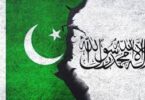Making a policy statement in the upper house of the parliament, Senate, Defense Minister Khurram Dastagir urged President Trump administration to hold meaningful dialogue with Pakistan instead of issuing threats of suspension of economic and security assistance. He said dialogue can be held only when a pleasant environment is created.The Defense Minister said the United States had spent trillions of dollars over its war in Afghanistan during the past 16 years but could not win it and now blames Pakistan for its failure, adding that after the repatriation of Afghan refugees the blame game will come to an end.
The relations between Pakistan and the United States has gone through many ups and downs but the history of past 70 years tells that they need each other support in the resolution of issues concerning this region. In the resolution of Afghan Conflict they are not mutually exclusive. The problem with PML-N leadership is that that they lake the art of skillful diplomacy and make incendiary statements against the United states which are entirely for public consumption. They add fuel to the fire when fire fighting is needed. The political leadership has repeatedly emphasized that foreign policy should originate in the parliament but remains shy of learning the art of diplomacy. After the attack of US helicopter gunships on Salala Check Post, parliamentary committee on national security was tasked to revisit the foreign policy and frame rules of engagement with the United States, but they failed to frame the guidelines to review Pak-US relations. The outcome was fiery speeches and passage of a rhetorical resolution.
The Interior Minister Ahsan Iqbal has met with the high officials of Donald Trump administration this week which raised the expectations of mending the ruptures in bilateral relations of both countries. But his media talks in New York and London indicate widening of trust deficit. He said that any unilateral action against Pakistan will be treated as a deadline for bilateral relations. In diplomacy difference of opinion and divergence on world and regional affairs is expressed subtly between the lines. Both Pakistan and the United states are stakeholder in the conflict in Afghanistan and the resolution of this issue requires removal of trust deficit through frequent interactions of quite diplomacy.
A recent glaring example of foreign policy failure is that the US and UK jointly moved a motion before the Financial Action Task Force (FATF) to place Pakistan on its terrorist financing watchlist. Pakistan raised serious concerns and objections to the proposal by the US and its western allies to place it on the global terrorist financing watch list terming the move politically motivated with an aim to hamper the country’s economic progress. FATF is an international body that sets standards relating to combating money laundering and terror financing. Are these move a tell-tale signs of the US and its allies to get rid of loose ends? Does it a harbinger of confiscating the money stolen from the people of Pakistan by the politicians and elites?
Lawmakers from both treasury and opposition benches in the National Assembly termed the US efforts to push Pakistan on the watchlist of FATF a failure of the government foreign policy and success of the Indian narrative to isolate Pakistan. The fabricated story of ‘Dawn leaks’ purposely leaked out from a meeting chaired by the former Prime Minister Nawaz Sharif was described a narrative of the enemy country by the former Interior Minister Chaudhry Nisar Ali Khan. At this crucial juncture, Pakistan needs master diplomat foreign ministers like Agha Shahi and Sahizada Yaqoob Khan for the smooth conduct of foreign relations in the current turbulent situation of this region. They were the ones who demonstrated the skills of tightrope walk in the realm of foreign policy.






